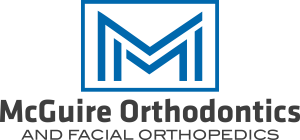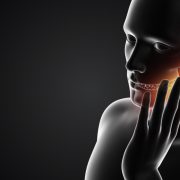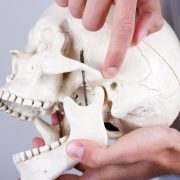How Poor Alignment Can Cause TMJ
TMJ, or temporomandibular joint disorder, is a condition that can cause excruciating pain in the jawbone. The pain is also commonly known to spread throughout the head area, causing headaches, and to the neck, shoulder and back area, causing localized pain. For anyone experiencing TMJ in Solon, OH, and other areas, the pain and discomfort can be more than pain. It can disrupt daily life, causing a person to have lowered quality of life. Many people are unaware that alignment issues, treatable with orthodontics, can actually cause or contribute to the development of TMJ.
How Alignment Relates to TMJ
The temporomandibular joint is the one located at the “hinge” of the jaw. This hinge connects the jaw to the rest of the head, or the skull. When teeth and jaw structures are misaligned, it forces the TMJ to work harder to perform basic functions, like chewing and speaking, which can lead to strain and irritation over time. This misalignment can come from various causes, including bite issues like overbites, underbites or crossbites, as well as other structural anomalies that push the jaw out of its natural position.
What Happens When There is Poor Alignment
When the bite is not aligned correctly, stress is placed on the temporomandibular joint. The bite, for anyone who does not fully understand, is the way the upper and lower teeth come together when a person chews, bites or vocalizes (speaking or singing, etc.) Now, imagine if you have two separate things coming together—the upper and lower teeth—but one is coming in at an angle, or off-center. That’s a misalignment in the bite.
When the jaw doesn’t close properly or is forced to move in ways that are unnatural, the muscles may become overworked, leading to inflammation and soreness. This persistent strain can cause the muscles around the TMJ to tighten and spasm, which then creates a ripple effect, causing headaches, neck pain, and even back pain as the body tries to compensate for the misalignment. Over time, this cycle of muscle strain and joint irritation can lead to chronic TMJ pain and dysfunction.
Orthodontic treatment in Solon, OH often resolves TMJ. To learn more about how poor alignment and TMJ can be corrected with orthodontics, contact McGuire Orthodontics and Facial Orthopedics today.









